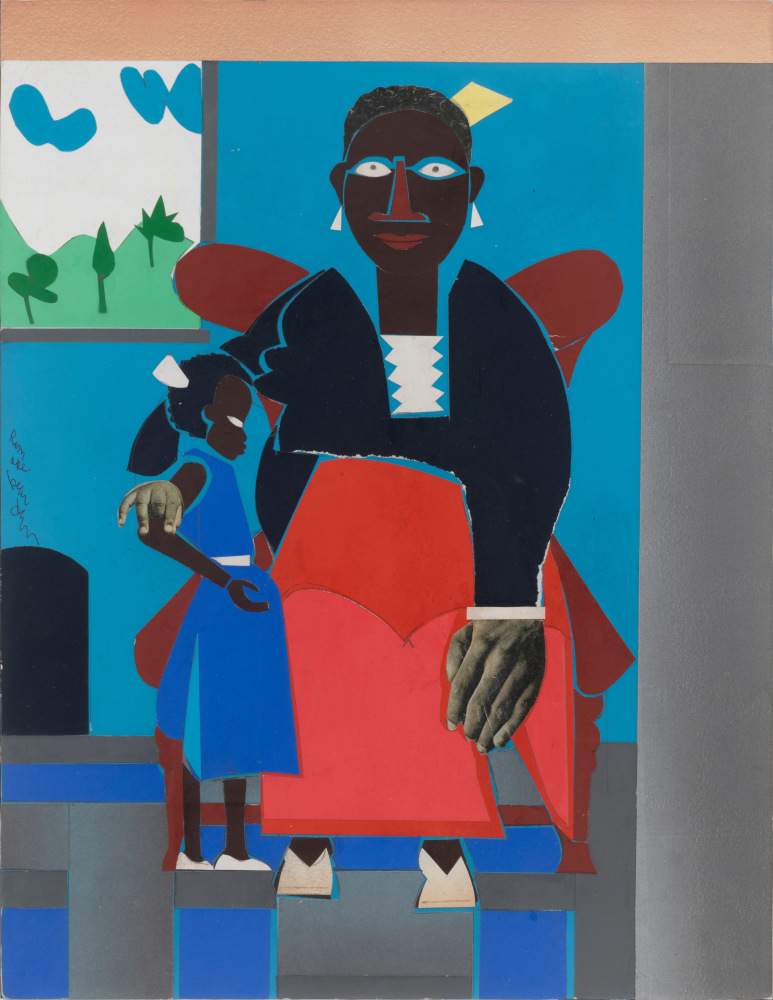Romare Bearden was an African-American artist, activist, and writer. He is perhaps best remembered for his inventive paintings of black culture, as seen in his mural-sized work The Block (1971). “You should always respect what you are and your culture because if your art is going to mean anything, that is where it comes from,” the artist once said. Born on September 2, 1911 in Charlotte, NC, Bearden moved with his family to Harlem in 1914. His parents’ household became a social and intellectual hub for luminaries of the Harlem Renaissance, visited by the likes of Duke Ellington and Langston Hughes. From 1935 until 1937, Bearden was employed as a cartoonist for the Baltimore publication Afro-American, but for most of his life he worked as a social worker in New York, making art in his free time. A founding member of the Harlem Cultural Council and Black Academy of Arts, Bearden was elected to the National Institute of Arts and Letters in 1972. The artist received the Mayor's Award of Honor for Art and Culture in New York in 1984 and the National Medal of Arts in 1987. He died on March 12, 1988 in New York, NY. In 2013, his hometown of Charlotte dedicated a city park in honor of Bearden’s legacy. Today, the artist’s works are held in the collections of the Metropolitan Museum of Art in New York, the Museum of Fine Arts in Boston, the Art Institute of Chicago, and the Philadelphia Museum of Art, among others.

